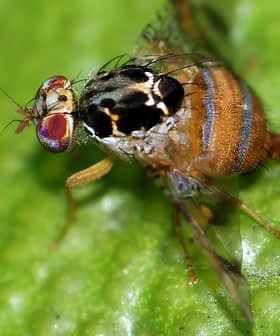A new strategy has been given the go-ahead in Italy for the widespread introduction in the environment of the samurai wasp to fight the further spreading of the brown marmorated stink bug, the Asian insect that has, since its arrival in Italy in 2013, had a devastating effect on Italian agriculture production.
Its presence is also considered a growing menace to the productivity of olive trees.
Conferenza Stato-Regioni, the Italian institution coordinating national and local politics, has approved the extraordinary allocation of $87 million to cover at least some of the damages caused by the stink bug in the 2019 farming season and approved the inoculation of the samurai wasp in selected areas.
The samurai wasp is a minuscule insect that is considered the biological opponent of the Asian bug since it deposits its own eggs within those of the pest. It does not represent any kind of danger for humans.
The samurai wasp’s well-known reproductive strategy has been studied in the last three years in Italy, both to understand how effective it can be in containing the reproduction of the bug and to evaluate the consequences of its introduction in the environment.
See Also:Introduction of Samurai Wasp Proving Effective Against Stink Bugs in ItalyThe goal of its deployment is to contain the presence of the bug by at least 60 percent in most areas. It will take a couple of seasons to see the first results, researchers said.
The brown marmorated stink bug has brought many farmers in the last few years to substantially increase the use of pesticides to control the damages to their crops.
More recently, Italian research in olive groves hit by the premature falling of their fruits has identified a direct correlation between the presence of the Asian bug and the drop-off phenomenon. More research is forthcoming.








